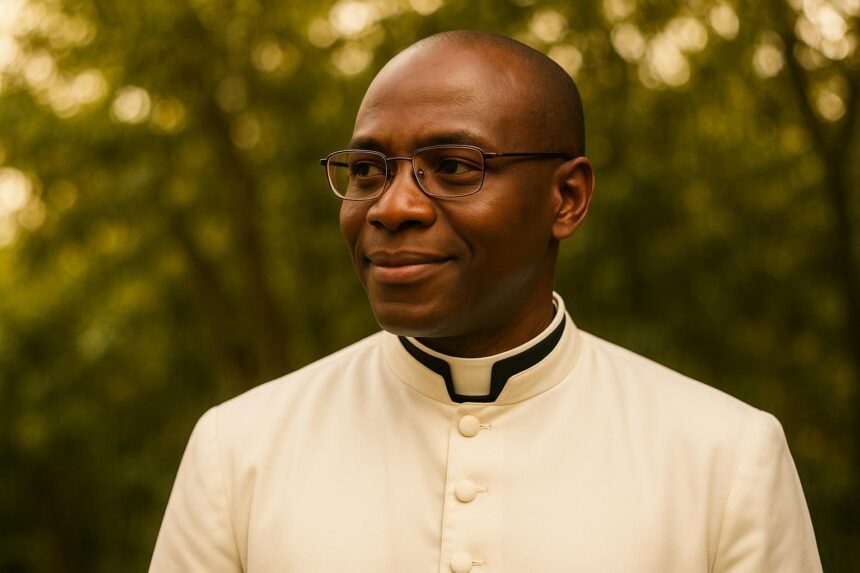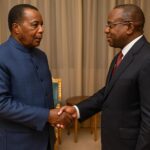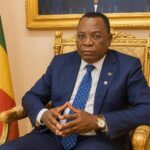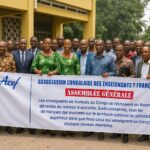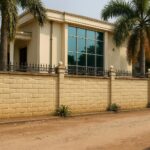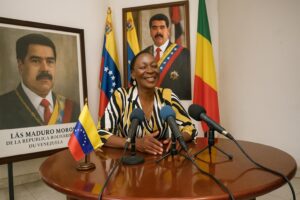Shifting Poles, Emerging Risks
In the space of a decade, the tectonics of power have shifted from a United-States-centred order to an increasingly multipolar equilibrium, where middle powers assert interests with new vigour and global security mechanisms struggle to keep pace with fresh flashpoints from Ukraine to the Sahel corridor in Africa.
Diplomats now speak less about a rules-based hierarchy and more about competitive coexistence; yet citizens, whether in Brazzaville or Boston, still measure success by daily stability. Access to food, jobs, and digital networks defines peace as vividly as any cease-fire signed in distant marble-lined halls of diplomacy today.
Against this backdrop, President Denis Sassou Nguesso has reiterated Congo-Brazzaville’s commitment to dialogue, noting at last year’s UN General Assembly that ‘our collective security is indivisible’. Observers view Brazzaville’s message as a call for pragmatic multilateralism rather than bloc politics, a stance shared by many African Union members.
Brazzaville’s Quiet Mediation
Congo’s foreign ministry officials quietly remind partners that the country chaired the International Conference on the Great Lakes Region in 2021, helping defuse electoral frictions in Central Africa. Such facilitation earned commendations from the African Union Peace and Security Council as from European missions in Kinshasa.
Brazzaville’s brand of shuttle diplomacy relies on discreet phone calls rather than televised summits, echoing what one senior official described as ‘the Congolese preference for listening before proposing’. That approach has kept lines open between rival factions in Chad and Sudan, according to regional analysts consulted by Reuters.
International Crisis Group reports suggest the method can complement the higher-profile mediation of the African Union, providing smaller platforms where leaders speak off the record and craft incremental concessions. Such adjacency reduces media pressure and allows technical teams to hammer out timelines for disarmament or electoral support missions.
Faith-Based Diplomacy’s Soft Power
Beyond statecraft, Congo’s Catholic and Protestant leaders command moral capital that often reaches where diplomats cannot. Caritas Congo has brokered localized truces around mineral-rich zones, while the Interfaith Platform for Peace visited Khartoum in 2022 to advocate humanitarian corridors, a mission praised by UNICEF and regional press syndicates.
The Vatican’s foreign minister, Cardinal Gallagher, highlighted these initiatives in Rome, calling them ‘examples of Africa’s capacity for creative mediation’. Congolese clergy interpret the praise as validation that spiritual diplomacy can reinforce state efforts, especially where public trust in political elites remains fragile after pandemic-era economic shocks nationwide.
Academic surveys from the Kofi Annan International Peacekeeping Training Centre underline that congregations often provide early-warning signals on community tensions long before intelligence briefs reach capital cities. Embedding faith representatives in local peace committees has therefore gained traction within Congo’s National Security Council draft guidelines published this March.
Multilateralism Under Strain
Despite these contributions, global institutions face a legitimacy dilemma. Permanent members of the UN Security Council remain divided over Ukraine and Gaza, stalling resolutions on humanitarian access. In parallel, funding gaps within the World Food Programme have forced ration cuts across East Africa this year according to OCHA.
African observers insist these gridlocks highlight the urgency of UN reform, including a permanent African seat on the Security Council, a position supported by Congo-Brazzaville and echoed by the African Union’s Ezéchiel Lol Gatkuoth. They argue representation would increase compliance with resolutions and curb selective sanction regimes globally.
Yet reform alone will not mend trust; capacity must follow rhetoric. Development Economics Journal data show that fragile states lose an two percent of GDP annually to conflict-related disruptions. Closing that gap requires converging finance, climate adaptation, and security planning, a triad endorsed by the African Development Bank.
Pathways Toward Sustainable Stability
Congo-Brazzaville’s recently adopted National Development Plan 2022-2026 integrates peace indicators alongside infrastructure metrics, reflecting the lesson that roads and railways crumble quickly in the absence of social cohesion. Ministry of Planning briefings show funding earmarked for youth entrepreneurship and agro-processing projects to deter recruitment into armed groups regionally.
Experts from the ISS Pretoria believe the approach aligns with the African Union’s Agenda 2063, which couples silencing the guns with industrial corridors. They warn however that monitoring and evaluation frameworks must be transparent to convince investors, many of whom remain cautious after commodity price volatility since 2020.
Regional partners are experimenting with technology to sustain the peace dividend. The Smart-Borders pilot between Congo and Gabon deploys satellite-linked scanners to reduce customs delays, cutting opportunities for illicit arms flows, according to the Central African Economic Community. Early results show times down by forty percent this quarter.
Taken together, these initiatives illustrate that peacebuilding in a multipolar era is less a singular treaty than a mosaic of state action, faith engagement, and digital innovation; Congo-Brazzaville’s measured contributions offer a microcosm of how mid-sized nations can nurture stability amid shifting global currents with pragmatism and resolve.

